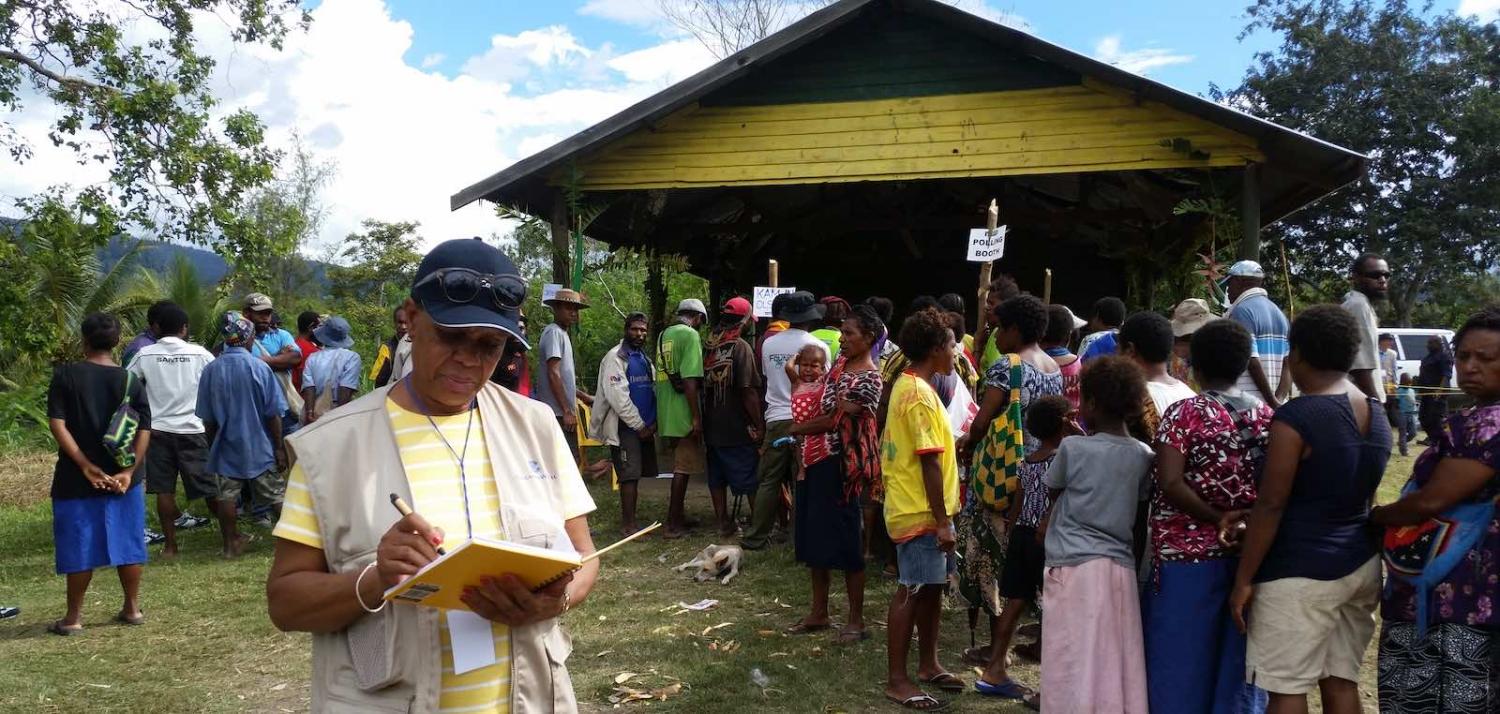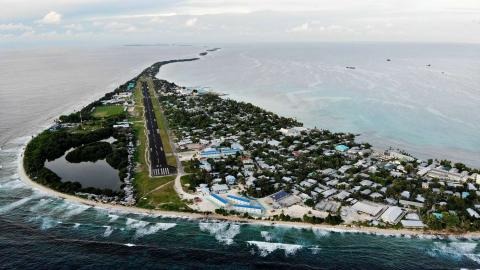Papua New Guinea will conduct its tenth national election in 2022. A by-election held this week for the Port Moresby North West (MNW) electorate provides a preview of what to expect next year.
In PNG, a by-election is required when a vacancy occurs more than a year before the return of writs for the next election. The passing of Sir Mekere Morauta in December of 2020 necessitated a by-election for the MNW electorate. The writs for the 2022 election are scheduled for 24 July, 2022*.
The MNW by-election issue of writs and nominations for candidates opened this year on 25 February, with nominations closing on 4 March. By close of nomination, 42 candidates, including one woman, had nominated. This number was higher than in 2017 when 39 candidates contested the seat, although the number of women candidates is lower, with three women contesting in the previous election.
Polling was scheduled for 3 April, but was postponed a few times to 2 June as PNG worked to control the second surge in Covid-19 cases and mourned the passing for former prime minister Sir Michael Somare. Another delay pushed polling to 4 June, with the Electoral Commission (PNGEC) citing a failure to coordinate with police. The by-election used the 2017 roll, which had 89,472 registered voters, and 89,500 ballot papers were issued. There were reports that many eligible voters could not find their names on polling day as the roll was not updated to account for Port Moresby’s annual population growth rate of 3.5% since 2017.
Managed to beat the rain and observe #PNG democracy in action at the Moresby North West by-election. Some frustrations from voters whose names were not on the electoral roll but otherwise an orderly process at the polling stations I visited in Hohola and Waigani this morning. pic.twitter.com/eIz4pBrU7v
— Keith Scott (@KeithScottFCDO) June 4, 2021
A few extra measures were instituted by the PNGEC to improve election administration and assist voters. These included colour coding the ballot boxes, two lines at polling (one for each gender), Covid-19 protocols (wearing of masks, temperature checks, 1.5-metre social distancing and hand sanitising), as well as multiple locations for counting. Counting of first preference votes is underway at each ward, with second and third preference counts during elimination rounds to be conducted at a single location. The PNGEC has stated that counting at wards is less costly, and it is easier to adhere to Covid-19 protocols.
Counting is planned to be completed within 21 days. The winner, to be declared before the end of June, will have only nine months in office before the 2022 elections begin.
When drawing lessons from the experience of this by-election, it is important to note that MNW is an urban electorate, while most of PNG’s other electorates are rural. The MNW by-election experience, however, reveals issues that need to be addressed as preparations are made for 2022.
The first issue concerns the roll update, which occurs a year prior to elections. The 2016 update of the 2012 roll left an inflated list (registered voters exceeding estimated voters by 13% nationally).
Multiple venues for the count might mean not all scrutineers of the different candidates could be present, and would stretch election and security resources, increasing the likelihood of counting fraud.
For this year’s roll update, the PNG government has indicated that it will use the July 2021 census to update the roll. The census risks failing as did the previous census in 2011, because of low funds allocated, insufficient capacity within the National Statistical Office (NSO), past instances of corruption, logistical challenges – and the pandemic.
The second issue concerns the number of candidates nominated. The MNW by-election indicates that candidate numbers may be higher in 2022. In 2017, the national average was 30 candidates contesting a single seat. High candidate numbers make elections difficult to run by lengthening the counting process. In 2017, only six out of 111 seats had winners declared after the first preference count. The rest went to consecutive elimination rounds (as many as 30 rounds in some seats), where second and third preferences of non-exhausted ballots were distributed until a winner was declared.
Another issue concerns the number of women candidates. In 2017, five per cent of all candidates were women (none were successful in winning a seat), and the MNW by-election suggests that in 2022 the total number of women contesting may be lower.
Problems with polling must also be addressed. In 2017, a high voter turnout (90%) reflected voters taking advantage of an inflated roll to vote more than once. There were problems also with ballot stuffing through underage voting, open voting, block voting (representatives voting on behalf of entire communities), proxy voting and family voting.
Also worrying is having the count of first preferences at multiple venues instead of a single venue. Unlike a central location, multiple venues for the count might mean not all scrutineers of the different candidates can be present, and would stretch election and security resources, increasing the likelihood of counting fraud.
Another issue is the current electoral commissioner is performing in an acting capacity, his position yet to be confirmed. Studies have found that acting appointees may be manipulated when faced with an uncertain future. This is worrying given the current acting commissioner was arrested in 2017 on corruption charges, and the former commissioner was arrested in 2019 on charges of corruption, money laundering, and conspiracy.
So far the MNW by-election suggests that many issues surrounding the 2017 election have not been sufficiently addressed. These problems must be confronted if PNG is to conduct a credible election next year.
* This date has been corrected.

